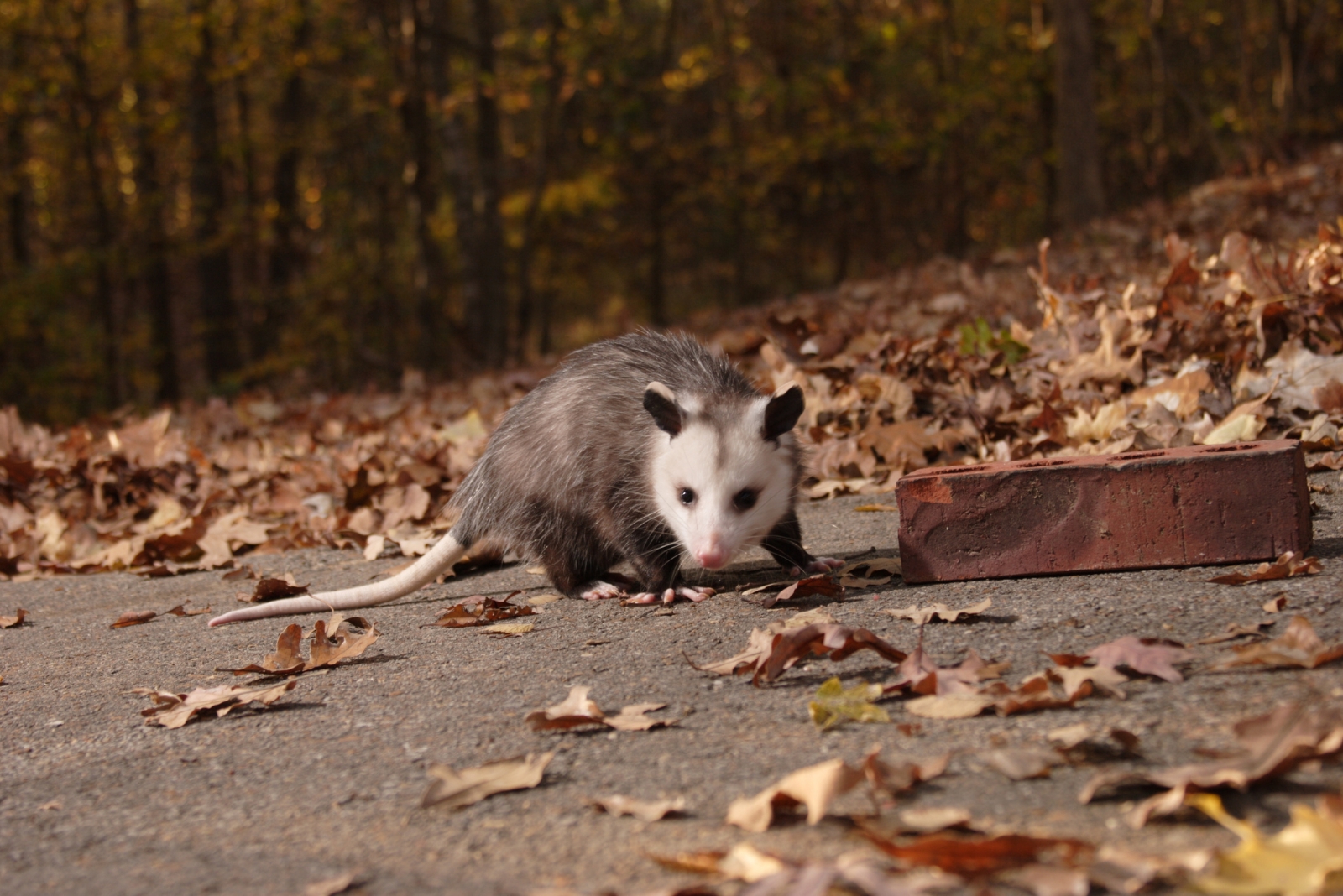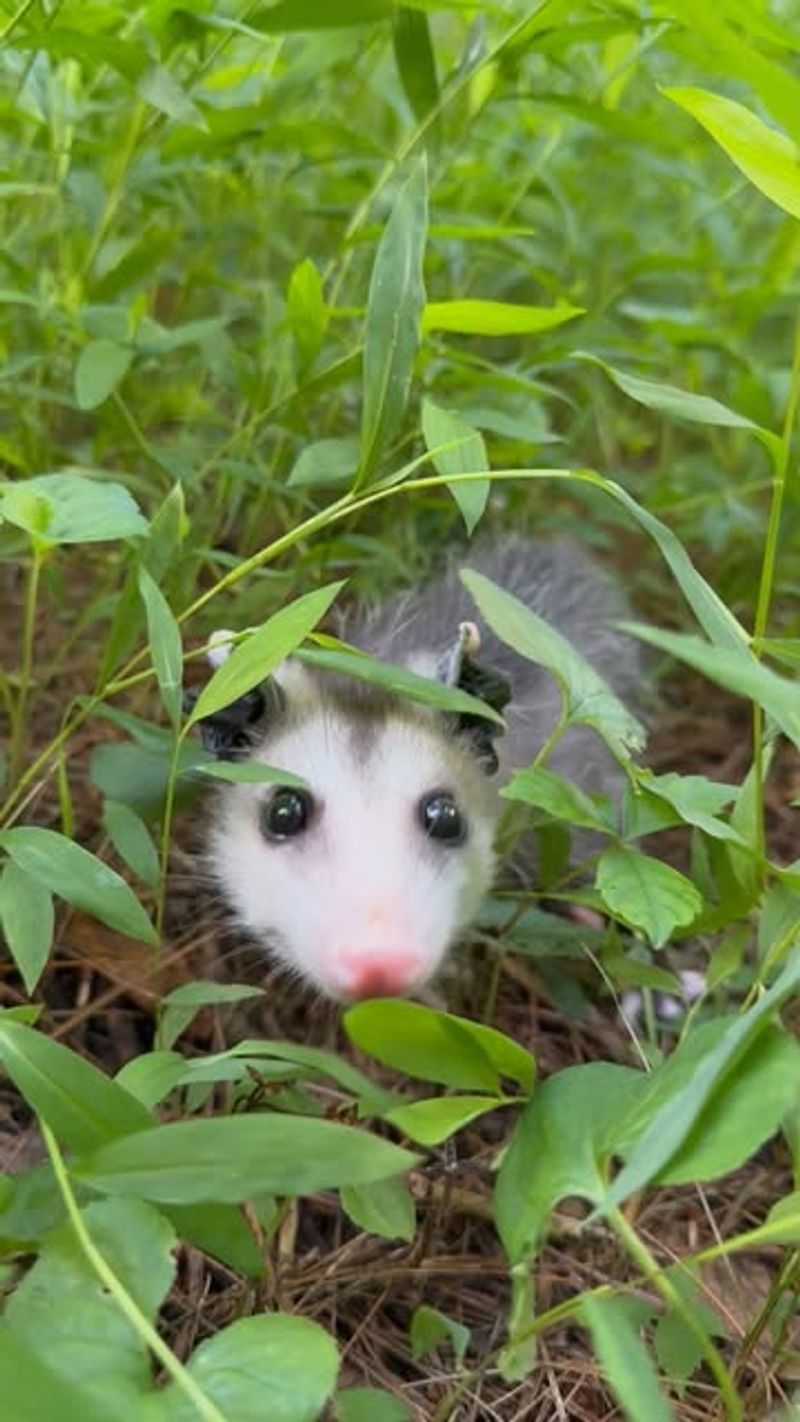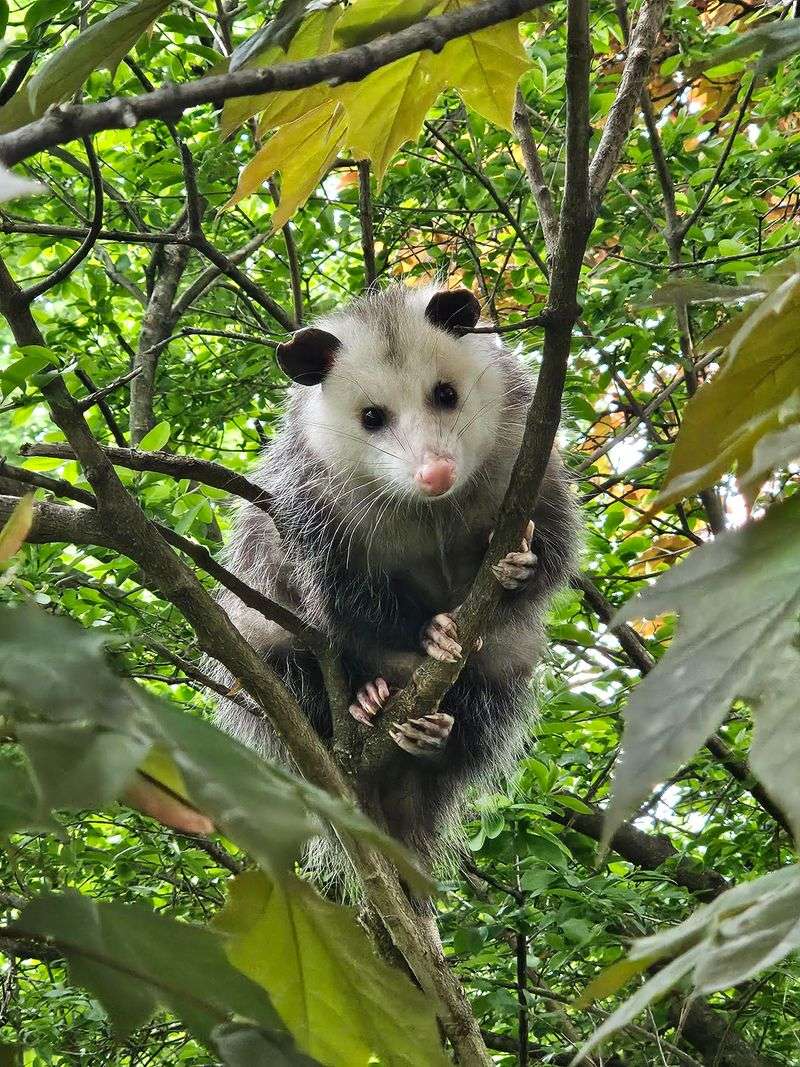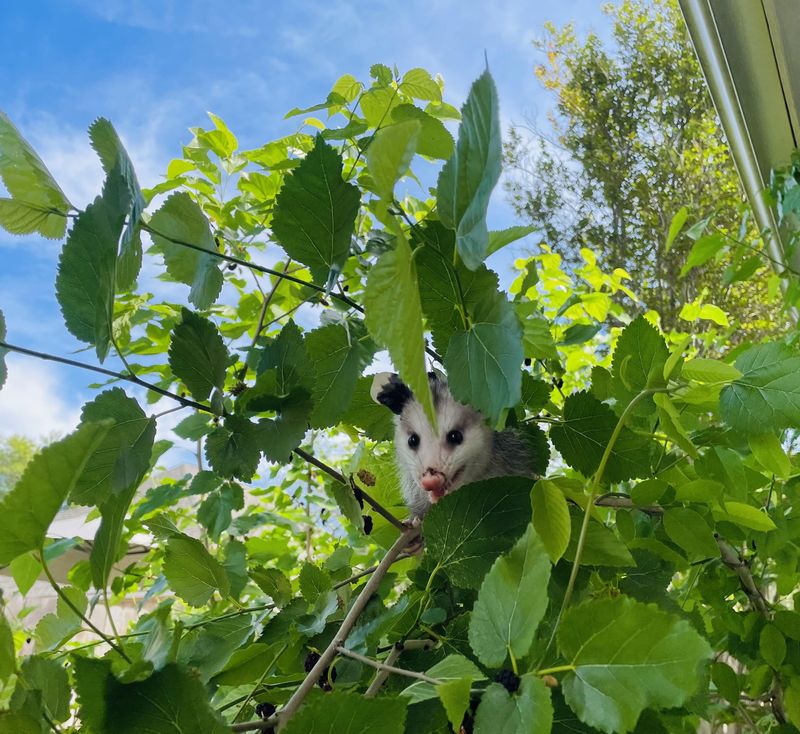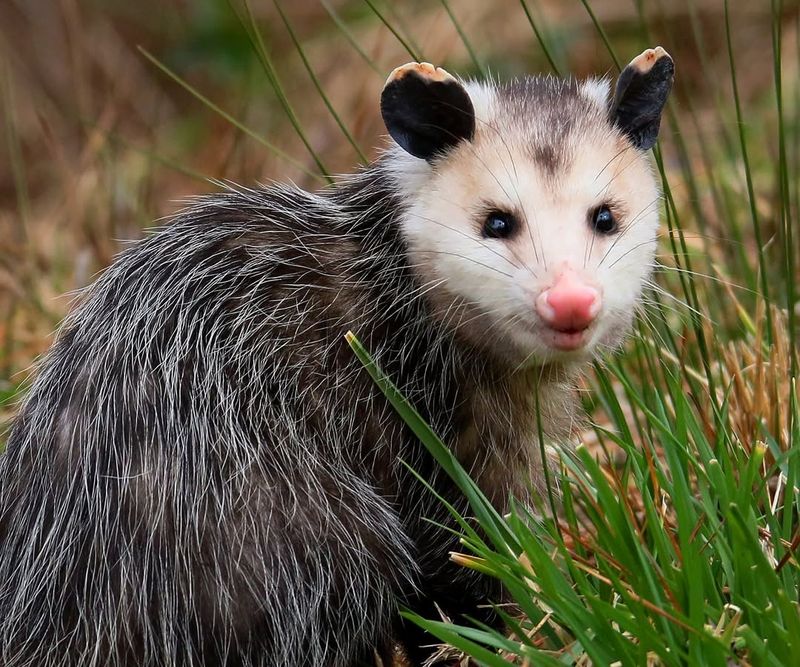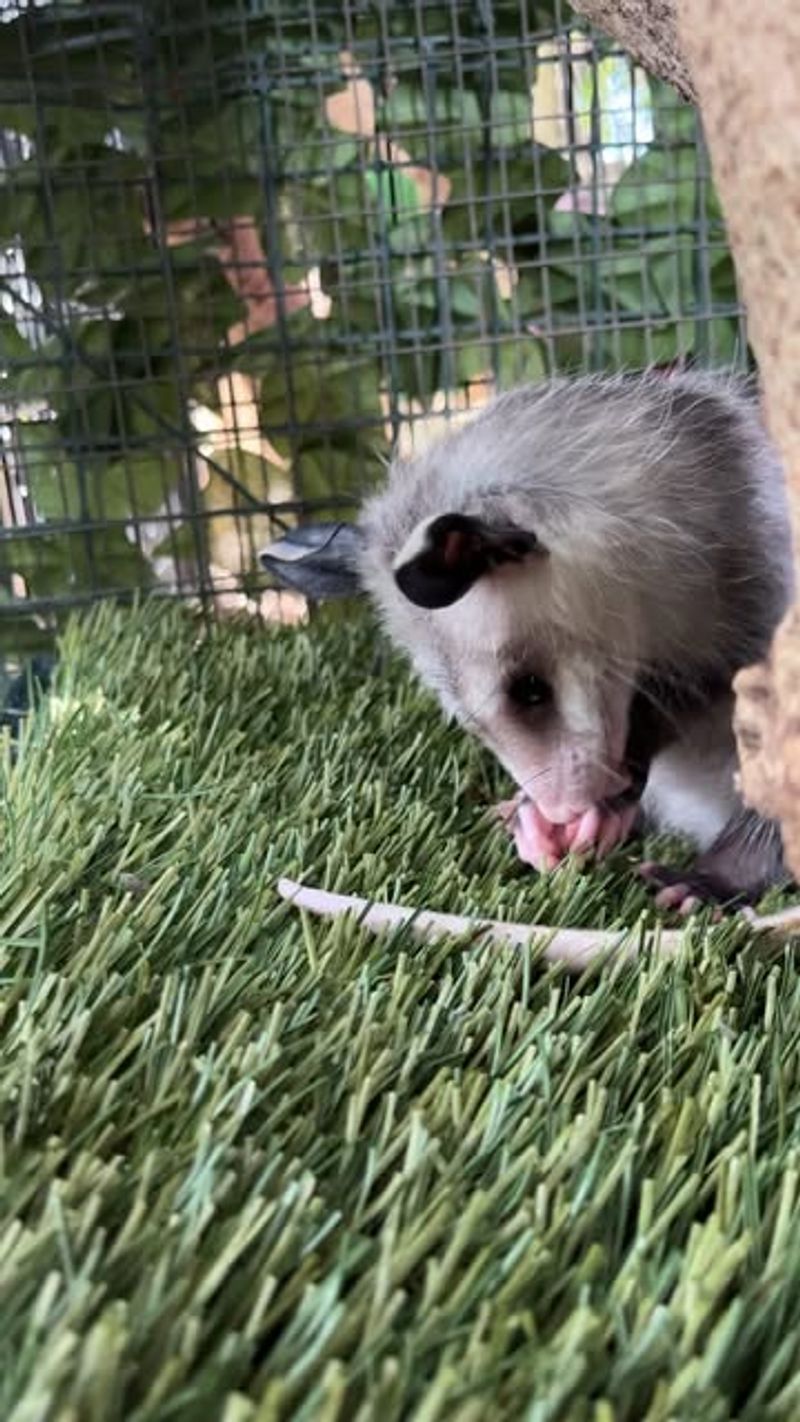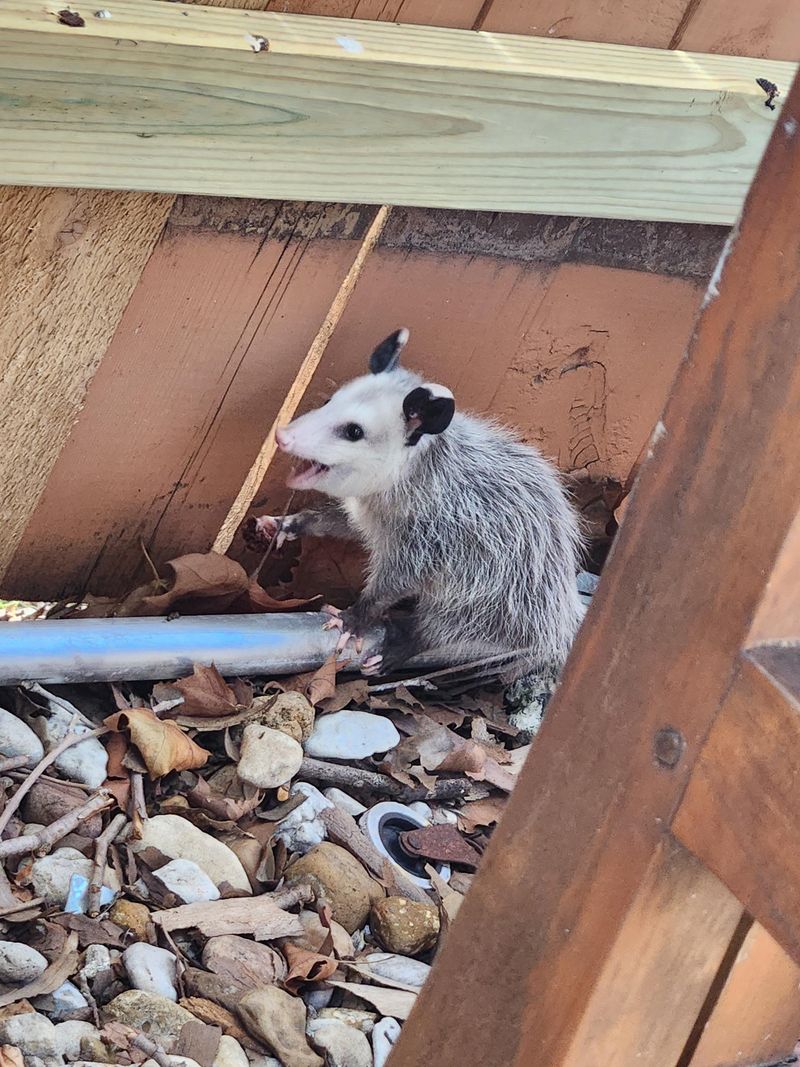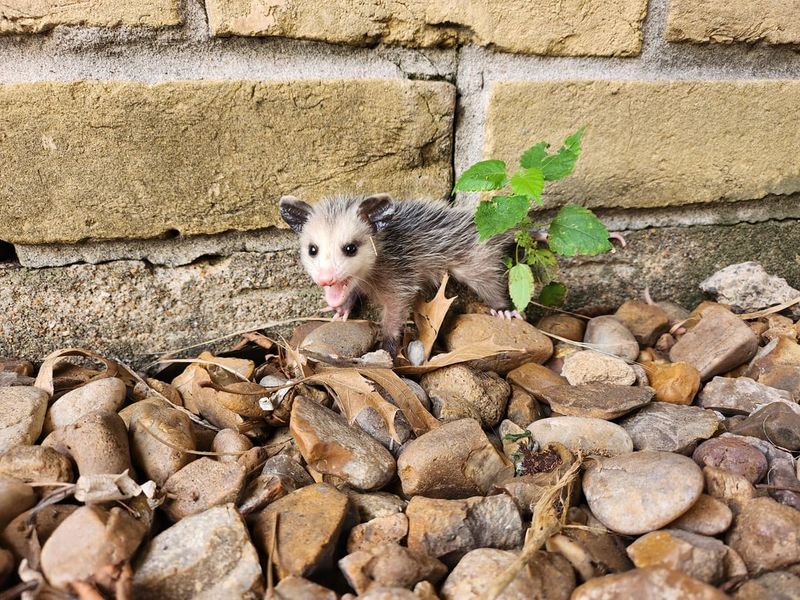Possums in Tennessee might look chaotic, but they’re often more helpful than people realize. I used to shoo them away instantly until I learned how much good they do around the yard.
They quietly handle pests most homeowners don’t want to deal with. Give them a moment, and you might be surprised at how useful they actually are.
1. Tick-Eating Machines That Protect Your Family
A single possum can devour up to 5,000 ticks in one season, making them nature’s pest control squad. Across Tennessee, where Lyme disease and tick-borne illnesses are genuine concerns, having a possum patrol your yard offers real protection.
Families spend hundreds on chemical treatments, yet these furry helpers work for free. Unlike other wildlife, possums actively hunt and consume ticks that climb onto them while foraging.
Your kids and pets benefit from fewer disease-carrying pests lurking in the grass every summer evening.
2. Natural Pest Control Without Harmful Chemicals
Possums feast on cockroaches, beetles, rats, and mice that invade Tennessee homes and gardens. Instead of spreading toxic pesticides around your property, let these nocturnal workers handle the dirty jobs naturally.
Homeowners often don’t realize how many unwanted critters disappear thanks to possum appetites. Garden snails, slugs, and even venomous spiders become midnight snacks for these opportunistic eaters.
Your family avoids chemical exposure while maintaining a healthier, balanced ecosystem right in your own neighborhood.
3. Snake Population Control Experts
Did you know possums are immune to most snake venom? Throughout Tennessee’s rural and suburban areas, they actively hunt and eat venomous snakes like copperheads and rattlesnakes that threaten people and pets.
Rather than risking a dangerous encounter yourself, possums reduce snake numbers naturally. Their unique biological immunity allows them to take on serpents most animals avoid completely.
Keeping possums around means fewer frightening surprises when you’re working in the garden or letting children play outside during warm months.
4. They’re Virtually Rabies-Resistant
Contrary to popular belief, possums rarely carry rabies because their body temperature runs too low for the virus to survive. Tennessee residents often panic when spotting nocturnal wildlife, assuming rabies risk automatically.
Possums are actually safer neighbors than raccoons, skunks, or bats that commonly transmit diseases. Their low metabolic rate creates an inhospitable environment for many pathogens that affect other mammals.
Understanding this fact helps reduce unnecessary fear and allows coexistence with one of nature’s most harmless backyard visitors around your home.
5. Free Cleanup Crew for Fallen Fruit and Carrion
Possums act as nature’s sanitation workers by consuming rotting fruit, dead animals, and organic waste that would otherwise attract flies and bacteria. Tennessee properties with fruit trees or compost piles benefit enormously from their scavenging habits.
Decomposing matter breeds disease and foul odors when left unattended for too long. Possums eliminate these problems before they escalate into bigger health hazards for your household.
Think of them as unpaid garbage collectors maintaining cleanliness and preventing nastier pest infestations from taking hold nearby.
6. Non-Aggressive and Temporary Visitors
When threatened, possums don’t attack—they freeze, drool, and play dead convincingly. Tennessee homeowners mistakenly interpret their hissing as aggression, but it’s pure bluff with zero bite behind it.
Unlike raccoons that tear into trash or squirrels that damage attics, possums simply pass through without causing property damage. They’re nomadic creatures that rarely stay in one location longer than a few nights.
Patience means they’ll move along naturally without requiring intervention, trapping, or relocation efforts that cost money and time unnecessarily.
7. Supporting Local Biodiversity and Ecosystems
As North America’s only native marsupial, possums play an irreplaceable role in Tennessee’s ecological balance. Removing them disrupts food chains and allows pest populations to explode unchecked throughout communities.
Biodiversity strengthens environments against disease outbreaks and environmental changes that affect everyone living nearby. Every creature contributes something valuable, even ones we initially find unappealing or strange-looking.
Embracing wildlife neighbors teaches children respect for nature while maintaining the complex web of life that keeps Tennessee’s landscapes healthy and thriving.

